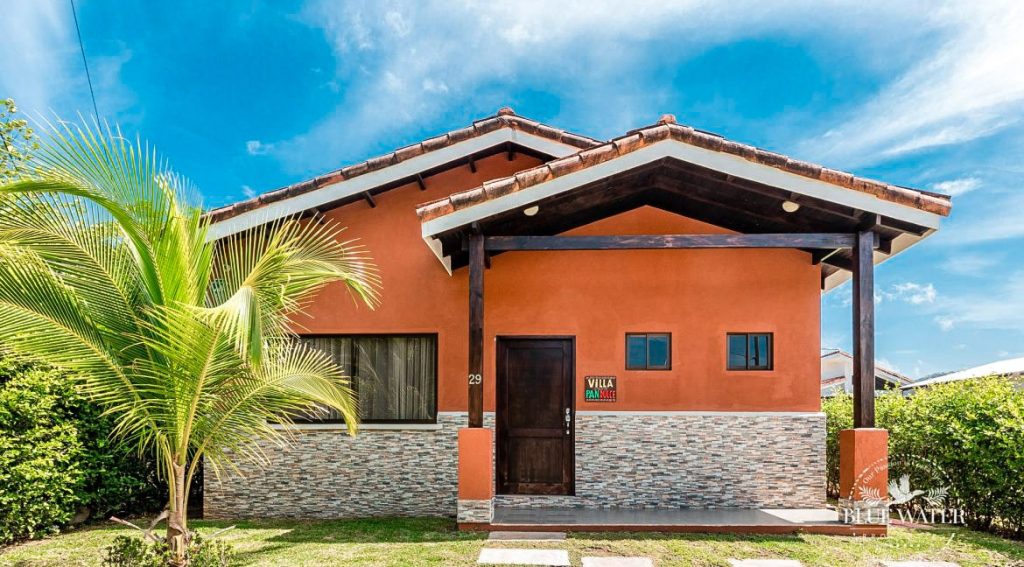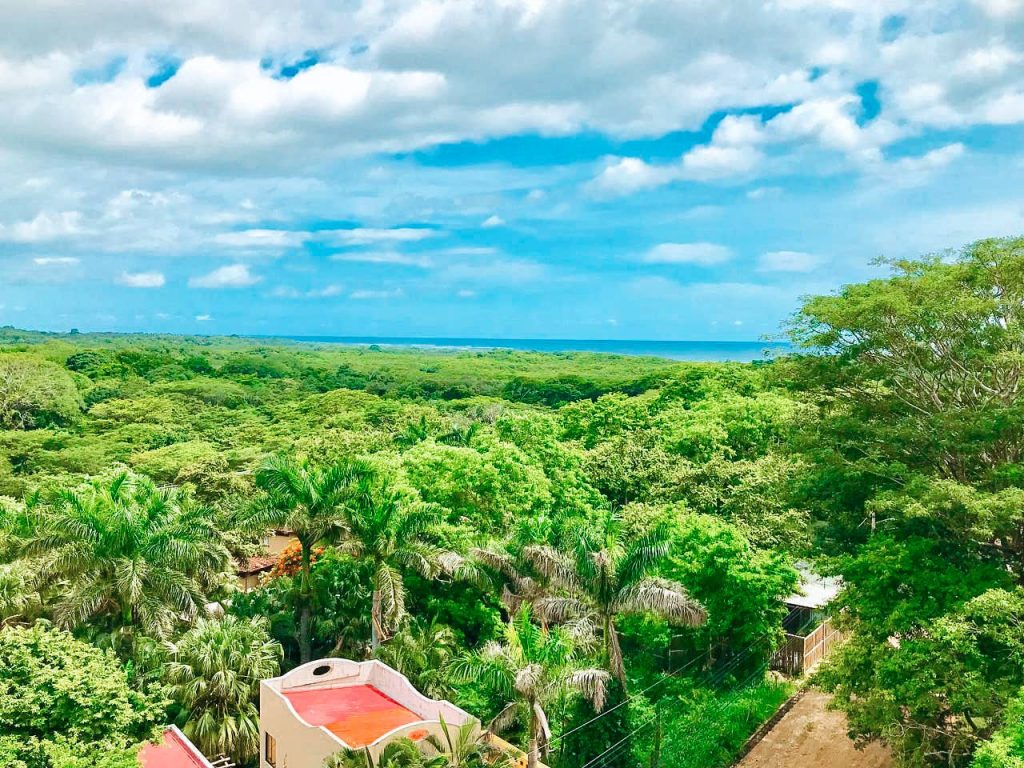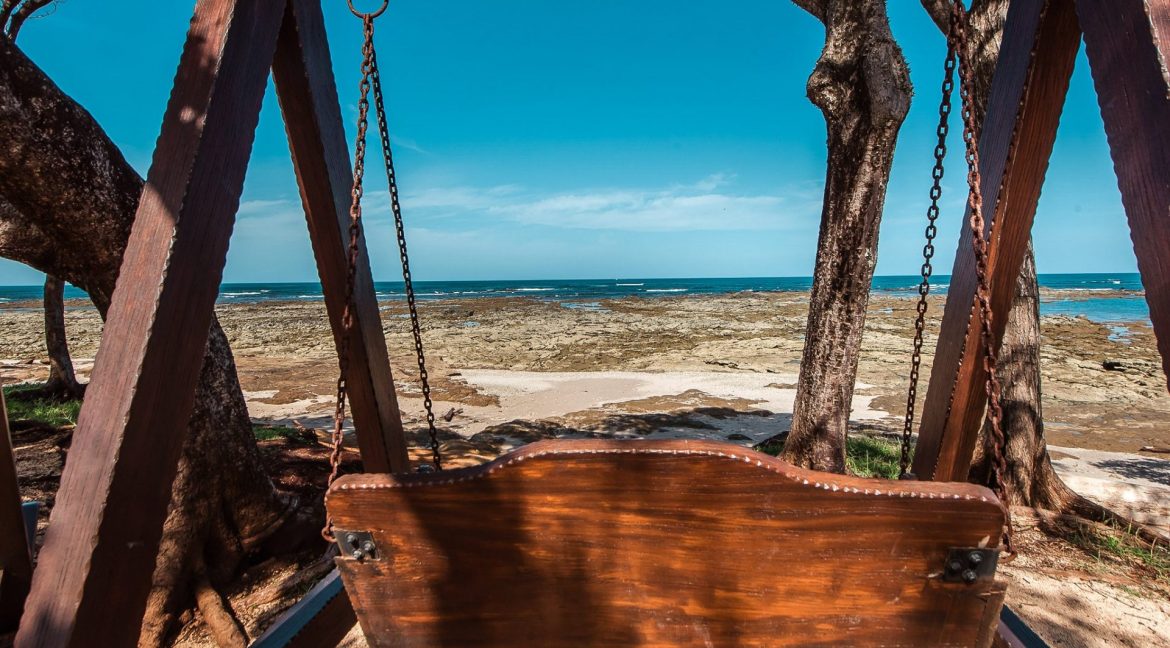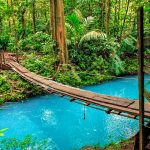We are so excited to share that per Costa Rica’s new residency laws, life has just gotten easier! And significantly less taxed. Because why not top off this good-news sundae with a few juicy cherries?
Two new residency laws in Costa Rica have passed debate – and both improve your residency options in different ways. The first packs a double punch, lowering investor requirements while adding serious tax exemptions (for several residency types), while the second adds a new residency option for digital nomads.
Here are the details:
Bill of Law N. 22156: $150K Investors + Tax Exemptions for New Residents

Welcome to the new investor sweet spot: the $150K-$200K price range, which includes Casa Pan Dulce, a single-family traditional home close to Tamarindo and beautiful beaches!
Last week, Bill of Law N. 22156 passed its second Congressional debate. The president is expected to soon sign the bill into law, at which time it will be published and, within a couple of months, then enter into law.
Bill of Law N. 22156 covers several changes to residency laws, all of which are advantageous for new investors:
Lowered Investment Requirement for Investor Residency (Inversionista)
The investment threshold will be lowered from $200,000 (USD) to $150,000. Your real estate purchase is a qualifying investment.
So, to that end, let’s look at what your new $150,000-$200,000 investment can buy:
- Catalina Cove Lot 54 ($155,000): 5,100 m2 (1.25 acre) lot in the upscale gated community of Catalina Cove.
- Cabo Velas #33 ($160,000): A beautiful 3-bedroom condo/townhome just minutes to the area’s best surfing beaches.
- Casa Blanca 7 ($195,000): A brand new, modern condo walking distance to sparkling Playa Potrero.
- Tierra Condo Unit #7 ($198,000): An ocean-view condo set into the breezy hills of Tamarindo.
- Senderos Lot #5-3 ($199,000): A flat, ready-to-build lot overlooking the Senderos lake, currently being redesigned by renowned architect Carlos Valenzuela.
- Casa Pan Dulce ($199,000): An impeccable single-family, traditional home within the Loma Verde gated community.
- Los Suenos 2 – Unit #14 ($199,000): A 2-bedroom, 2.5-bath, two-story townhouse in a quiet gated community walking distance to everything.
- Los Suenos 3 – Unit #7 ($199,000): A recently renovated, 2-bedroom, 2.5-bath, two-story townhouse in a quiet gated community walking distance to everything.
- The Point At Avellanas ($199,000): Get in on the ground floor of The Point at Avellanas, an exclusive beach community.
Want to window-shop some more? Peruse our current Costa Rica real estate for sale or get in touch and let’s start the conversation.
Duty-Free Household Imports
Temporary residency holders – investors (inversionistas), renters (rentistas), and pensioners (pensionados) – will now enjoy an exemption on import taxes for household items, including whole containers, on their first import. (Any following imports will be subject to standard import taxes.)
This is a sizeable (in monetary terms) deviation from the current laws, which do not provide tax exemption on importing your household. The value of this change will depend on what you plan to import, but keep in mind that import taxes can range up to nearly 50% per item. For full-container imports, which are often valued in the $tens of thousands, the new law could save you $thousands in import duties.
Duty-Free Vehicle Importation
Temporary residency holders – again, investors (inversionistas), rentors (rentistas), and pensioners (pensionados) – will now be exempt from taxes when importing up to two vehicles for personal use.
Again, this is a valuable change over previous law, which provided no tax exemptions. The savings is a double whammy, as vehicle import taxes range from about 52% to 80%, depending on the age of the car (the older the vehicle, the higher the tax), so 0% duties add up fast. Beyond that, Costa Rica calculates a vehicle’s value based on its own calculations – often referred to as Costa Rica’s “black book value” – and this number is often much higher than the Kelly Blue Book value or even a vehicle’s purchase price.
All this to say, two tax-exempt vehicles offer major savings for most residents. Note, however, that were you to sell those vehicles, the associated import tax must be paid.
Other Tax Exemptions, per Costa Rica’s New Residency Laws
While duty-free household goods and vehicles represent two of the most obvious benefits, Costa Rica’s new residency laws also add on three other major tax benefits:
Transfer Tax Exemption: If you’re new to Costa Rica, you may not be familiar with transfer tax. If you’ve been here a while, you just sat up a little straighter. In Costa Rica, every time you purchase property, you (the buyer) pay a transfer tax to transfer the title from the old party to the new (that’s you). Under this new law, buyers will receive a 20% tax exemption on the purchase’s total transfer tax.
Income Tax Exemption: Per the new law, residents will be exempt from income tax for any income declared to qualify for investor residency. Note that any Costa Rican income – typically, this applies only to inversionista residents, as rentistas and pensionados cannot legally make an income in Costa Rica – will be subject to standard income tax rates.
Professional-Use Instruments and Materials: If you plan to work while in Costa Rica (we’re looking at you, inversionistas and digital nomads!), then you’ll be happy to know that your professional setup, including your mobile office, are now officially tax-exempt.
The law also extends to other benefits, including an expedited immigration process and residency resolution time.
Costa Rica’s New Residency Law for Digital Nomads

Hey digital nomads! Did you know? Costa Rica’s new residency laws are expected to soon include you. And that means this view could be your new home office!
Update – July 14, 2021: The Digital Nomad Bill has passed both debates and will soon be signed into law!
Last week, we also received the good news that the bill to create a Digital Nomad residency category was approved in the first debate. (Update: It has now passed both debates.)
This bill will make digital nomads officially welcome in Costa Rica. So first, what’s a digital nomad? Well, while the term was once (and by that, we mean 2019) used mostly in reference to freelancers who worked online, COVID changed that. In a good way, for once.
Today, many people work remotely. And they will all be eligible to apply for Costa Rica’s digital nomad residency. So, whether you’re a freelancer or consultant with an online business, a permanent employee who works remotely, or any other professional who earns an income from the comfort of your home, you are considered a digital nomad in Costa Rica’s eyes.
And this is a Big Deal, as Costa Rican residency has never before included the working-age population without significant funds to invest. And with that in mind, here’s how the drafted law will apply to digital nomads:
1-Year Estancia
Rather than full-fledged residency (a paperwork-heavy process, by the way), digital nomads will be granted a one-year estancia (pronounced ess-tahn-see-ah), or short-term right to reside. A Digital Nomad Estancia must reside in Costa Rica for a minimum of 180 days/year; an estancia may be renewed for a period of one additional year.
Income Outside Costa Rica
To qualify for the Digital Nomad Estancia, applicants must earn their income from sources outside of Costa Rica. Digital Nomads may not provide services in Costa Rica to Costa Rican companies, as that would fall under the category of work permit.
$3,000-$4,000 Monthly Income Requirement
To qualify for a Digital Nomad Estancia, applicants must provide documentation to show that, in the 12 previous months, they have received a stable income or rent of $3,000+ (single applicants) or $4,000+ (applicants with dependents). If you are applying with a spouse or partner as your dependent, then your combined $4,000+ income will qualify you both.
Your documentation must also demonstrate that your income is not location-dependent and that you will continue to receive this income, even if living outside your current country of residence.
Other Requirements
Digital nomads will also be required to have medical insurance that covers them in Costa Rica. (Requirements TBD.) As with other residency categories, they will also be required to pay a one-time fee for their non-resident visa. (Amount TBD.)
Eligible for Permanent Residency (Category Change)
Digital nomads may change their residency status (rather than apply for first-time residency), if they meet change-of-status requirements, for example after the birth of a child [in Costa Rica] or upon marriage to a Costa Rican.
Digital Nomad Benefits
In addition to the wonderful benefit of legal status in Costa Rica, digital nomads will also receive an array of benefits, including:
- Online Applications: Life just got easier! Digital Nomad Estancia applications may be filed online, for expedited processing.
- Income Tax Exemption: You will not pay income tax or utility tax for any income earned abroad.
- Professional Materials Tax Exemption: Whether you’re bringing a laptop or your entire $10k office setup, you’ll be exempt from import tax. Note that if you were to sell this equipment in Costa Rica, the respective taxes must be paid.
- Foreign License Waiver: If you hold a valid foreign driver’s license, you will be allowed to drive in Costa Rica.
- Costa Rican Banking: Digital nomads may open an account at Costa Rican banks.
Approval Pending!
Note that, as stated above, this new Digital Nomad Estancia has passed its first Congressional debate and now awaits the second. All signs point to the bill moving ahead and getting signed into law by the president, at which point we will know how the Digital Nomad Estancia will be applied, both in terms of requirements and practical applications.
Questions about Costa Rica’s New Residency Laws?
We make it our job to stay up-to-date on all things Costa Rica, including updates to residency laws. So please, feel free to get in touch. We’ll be happy to share updates, as they become available, on the two laws discussed above. And we can’t wait to help you find your Costa Rican investment – and dream property!
At Blue Water Properties of Costa Rica, we’re proud to offer some of the best Costa Rica Real Estate. We have both condos and homes, land and businesses for sale.


